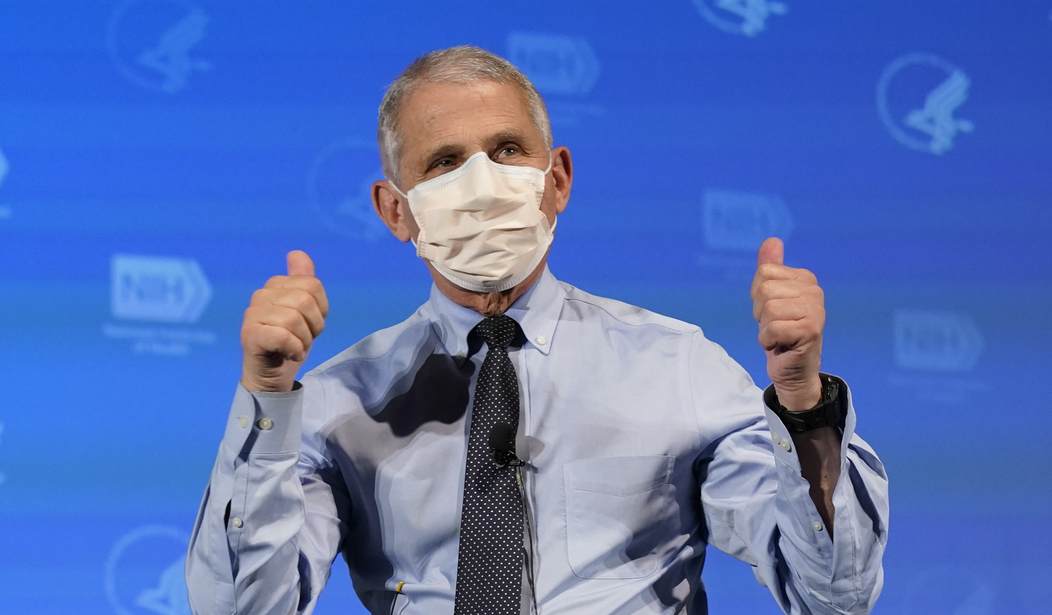On Thursday, Anthony Fauci informed the World Health Organization that the Biden administration will participate in WHO's vaccine-sharing project. That reverses President Donald Trump's "America First" approach. Fauci says the goal is to ensure "equitable access" to vaccines for all countries in the world, rich and poor alike.
Americans scrambling to get vaccinated have a right to know how sharing doses with poor countries will affect their own ability to get vaccinated.
Biden is coming under pressure from the public health community to share the vaccine supply the U.S. has prepurchased before all Americans who want shots receive them.
The vaccine sharing project, with the acronym COVAX, raises money to buy vaccines for poor countries and asks the wealthier countries to donate actual doses. The COVAX dose-sharing principles, released Dec. 18, are causing controversy in France, England, Canada and other countries struggling to get their own populations vaccinated. COVAX wants countries to share their doses as they receive them, rather than waiting to see what's leftover. So far, Norway has agreed.
WHO Director-General Tedros Adhanom Ghebreyesus says it's unfair for younger, healthy adults in countries like the U.S. to get injections before the frail and elderly in poor countries. He calls it a "catastrophic moral failure."
Similarly, Kate Elder of Doctors Without Borders objects "if a healthy 20-year-old in New Jersey is getting vaccinated before a front line health care worker in South Sudan."
Bruce Aylward, a WHO adviser, claims it's unacceptable for a country to vaccinate its entire population before offering doses to the highest risk inhabitants of poorer countries.
Duke University public health experts also argue that high-risk groups in poor countries should get the vaccine before the U.S. public. A report from the Duke Global Health Innovation Center complains that wealthy countries are monopolizing the initial supply.
Recommended
Thursday's White House statement on vaccine sharing says the U.S. will comply once there is "sufficient" supply here. What does "sufficient" mean? When just those at highest risk are vaccinated, as globalists propose, or when shots have been offered to all Americans? The public needs a clear answer to that question.
There are powerful reasons to oppose COVAX's vaccine-sharing principles.
First, U.S. taxpayers poured billions into Operation Warp Speed to develop the vaccines with the understanding they'd get a large share of initial production. When Trump refused to join COVAX, The New York Times slammed the decision as "vaccine nationalism," but Americans desperate to get vaccinated are unlikely to be worried about political correctness.
Second, the U.S. is striving to reach herd immunity by summer, which scientists predict will require about 70 percent of the population to be vaccinated. Diverting some of the vaccine supply to COVAX would endanger that goal.
On Monday, the International Chamber of Commerce joined the call for equitable distribution of vaccines, arguing that helping poor nations will benefit the economies of wealthy ones. True in the long run, but vaccinating a quarter of the population of every country, as COVAX proposes, would necessitate the US and other developed countries giving up a return to normal this year.
Third, as new virus variants emerge, vaccination becomes even more a race against the clock. Otherwise a variant could appear that is not susceptible to the vaccine. Moderna announced Monday that its vaccine is somewhat less effective against the recently identified South African variant. People may need yearly boosters against emerging strains.
In the last two weeks, both the European Union and the U.S. have been hit with unexpected news about manufacturing setbacks. Monday the European Union actually threatened to ban Astra-Zeneca from exporting any doses until it meets its contractual obligations. The EU is putting its own people first.
That's a lesson for America. Decisions about vaccine sharing should not be left to public health "experts" whose globalist views are now ascendant in Washington, D.C. Helping the world is important, but America needs to take care of its own first.
Betsy McCaughey is a former lieutenant governor of New York and author of "The Next Pandemic," available at Amazon.com. Contact her at betsy@betsymccaughey.com or on Twitter @Betsy_McCaughey.

























Join the conversation as a VIP Member